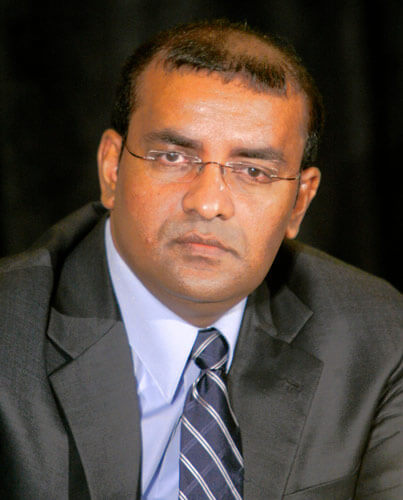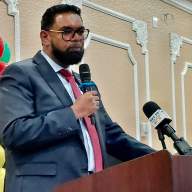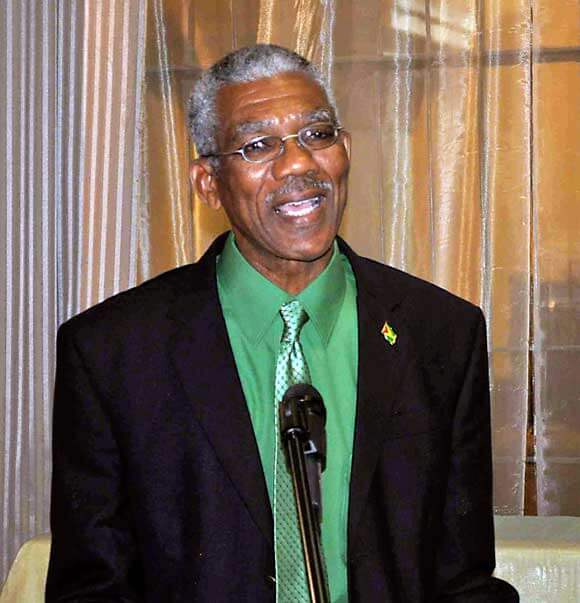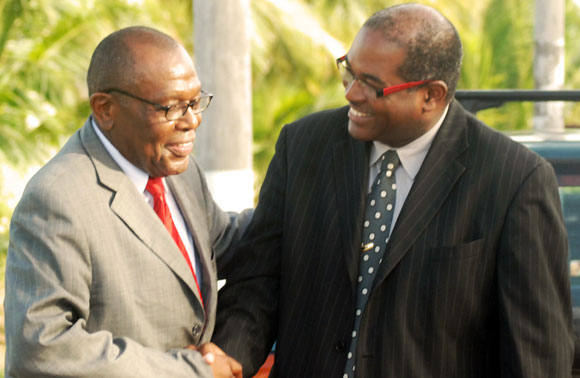The ferocity of the row just doesn’t seem to be subsiding. Back in late 2011 when no one was looking and just before his mandatory two terms were ending, former Guyanese President Bharrat Jagdeo handed out multiple radio licenses to his friends and family, ignoring decades-old applications from numerous media professionals, some of whom had applied long before Jagdeo was even in cabinet.
Until opposition legislator Kathy Hughes forced Prime Minister Samuel Hinds in parliament to reveal the names of who were awarded licenses in secret, very few had had known that frequencies were awarded to members of Cabinet such as Natural Resources Minister Robert Persaud and the ruling party’s newspaper, the Mirror. Even the Rice Producers Association whose main daily function is to relate to coastal rice farmers has obtained a license, to the astonishment and consternation of critics countrywide.
Hinds’ forced revelations has not only set off a firestorm in Guyana but the row and demand for the revocation of the 22 frequencies have reached Capitol Hill in the U.S. where former PNC cabinet minister Noel Blackman, owner of Ch-9 TV station in Guyana, Kaieteur Newspaper publisher Glenn Lall and Charles Griffith also of Channel 9, were this week working the corridors of Congress briefing representatives, trying to get them involved in the Guyana situation that also includes widespread corruption and narco trafficking.
Local television news anchor Enrico Woolford, Guyana Press Association representative Nazima Raghibir and Wesley Gibbings of the Trinidad-based umbrella Association of Caribbean Media Workers (ACM) are also headed to World Press Freedom day activities in Curacao over the weekend to take their anti-government lobbying campaign to reverse the award of the licenses to hundreds of delegates planning to attend.
The main ally of those headed to Capitol Hill and Curacao would be the Austria-based International Press Institute (IPI), which recently sent a delegation to Guyana to lobby for the abolition of criminal libel but was overwhelmed by complaints about the atrocity.
The IPI and the ACM have already indicated that they will raise the issue with the international audience attending the conference in Curacao. Alison Bethel-Mckenzie, the body’s executive director, said she and colleagues remain stunned at the fact that the Guyana Minister of Information is none other than President Donald Ramotar who like predecessor Jagdeo, can arrogate all powers to themselves to award licenses to anyone who they so wish, ignoring others who are legitimate practitioners and who has met the limited criteria set out for applicants.
“There is nowhere else that I know that the president functions as the minister of information. That is very strange,” she said several times during her mid-April swing through Guyana.
Those participating in press freedom activities plan to ask for time to make their case and to ask for a resolution condemning the awards.
Says Woolford who like Lall has moved to the courts to challenge Jagdeo and Ramotar, “this travesty is widely seen as the worst incident ever of insider trading in Guyana, the headquarters of CARICOM. We therefore seek your solidarity and support in not only condemning this attack on press freedom but also in demanding the revocation of the licenses and immediate amendments to the broadcasting act,” Woolford said in a note to delegates.

























